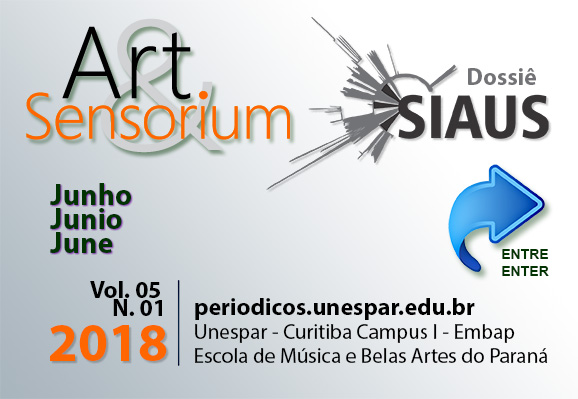PROMETEU, EPIMETEU E PANDORA: CORPO, TÉCNICA E TECNOLOGIA EM "BLACK MIRROR"
DOI:
https://doi.org/10.33871/23580437.2018.5.1.282-296Abstract
Este ensaio tem como objetivo sustentar o pressuposto de que o seriado Black Mirror apresenta uma perspectiva prometeica trágica frente as relações do corpo com a técnica. Sustenta-se tal hipótese na medida em que na maioria de seus episódios o corpo manipulado pelas técnicas opta, frente ao enredo trágico criado pela narrativa, retornar a uma condição natural (precária) já superada pelo uso da tecnologia em voga no episódio. A série se pauta numa narrativa na qual o homem prefere "recuar sua caminhada em direção a deus" assumindo sua condição de estar "atado às correntes de Zeus" . Alinhada à promessa prometeica sobre técnica, Black Mirror mostra a tragédia da humanidade imersa na (com)fusão entre a natureza e a técnica. Nesse sentido, a temática do virtual é recorrentemente utilizada no seriado, e retomada como categoria para tencionar o objetivo do ensaio.
Downloads
Downloads
Published
Issue
Section
License
Copyright (c) 2022 International Interdisciplinary Journal of Visual Arts - Art&Sensorium

This work is licensed under a Creative Commons Attribution 3.0 Unported License.
Authors who publish with this journal agree to the following terms:- Authors retain copyright and grant the journal right of first publication with the work simultaneously licensed under a Creative Commons Attribution License that allows others to share the work with an acknowledgement of the work's authorship and initial publication in this journal.
- Authors are able to enter into separate, additional contractual arrangements for the non-exclusive distribution of the journal's published version of the work (e.g., post it to an institutional repository or publish it in a book), with an acknowledgement of its initial publication in this journal.
- Authors are permitted and encouraged to post their work online (e.g., in institutional repositories or on their website) prior to and during the submission process, as it can lead to productive exchanges, as well as earlier and greater citation of published work (See The Effect of Open Access).





